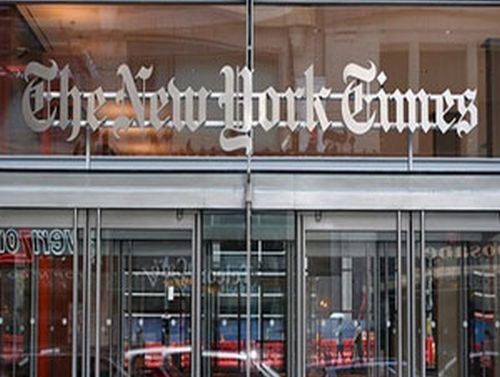The New York Times offers critical review of failed actions and plans against Cuba.
The famous German physicist Albert Einstein shook the scientific world with his theory of relativity by raising the variability of the phenomena and their assessment under different conditions. From that moment on, there is a greater awareness of the relativity of things and events if they are observed through different prisms.
This is precisely what happens to an expert reader when reviewing the article in The New York Times published as: In Cuba, Misadventures in Regime Change, fifth editorial of the major media outlet in the last 30 days dedicated to issues related to the neighboring island.
All things considered, there is no use in denying the positive things of such materials devoted to criticizing the blockade, the swap of political prisoners between the two countries, recognizing the unique contribution of Cuba in the fight against Ebola, and questioning the methods used by the United States in order to bring about a regime change in the Antilles archipelago. The negative is what underlies it.
The Times does not take into account the principle that it is totally unacceptable, illegal and unethical—in the light of the practice of international law— to overthrow governments that do not please Washington; what The Times questions is the persistence on a course of action against Cuba that has failed miserably and is bringing growing headaches for the superpower.
This approach gives priority to an extreme pragmatism, typical of many institutions and large sectors of the population in North America, which translates into applying or rejecting actions and tactics based on the criteria of effectiveness rather than legality and ethics. In other words, the end justifies the means, and that is something nations governed by laws and honest people everywhere in the world will never accept.
Back to that article, on each of the materials about Cuba some points of mutual interest are addressed, and that’s positive, however their ultimate purpose is to divert the path of the independent nation, which is inadmissible.
The Times, for example, recognizes that the so-called democracy funds granted by the US government to destabilize the Cuban counterpart, ” have been a magnet for charlatans, swindlers and good intentions gone awry”, and recommends a more diplomatic approach. This, undoubtedly, is obvious.
At least from here, it is perceived as good in some way that a high ranking publication like The New York Times began to realize the futility of investing money from American taxpayers to fatten the pockets of criminals and opportunists, residents on both sides of the Florida Strait who have made anti-Cuban rhetoric a particularly lucrative modus vivendi.
There is evidence in the repeated claims of the Cuban authorities on the purchase of luxury products such as fur coats, clothes, food and others to distribute among the thus-termed dissidents, as well as the videos of well-paid-by-the-North ladies in profitable journeys through out Havana stores, who are also specialists in theatrical hunger strikes with high nutrient intakes.
The biased approach of the New York newspaper can be summed up in the following paragraph: “The United States should strive to promote greater freedoms on the island of 11 million people and loosen the grip of one of the most repressive governments in the world. But it must chart a new approach informed by the lessons of nearly two decades of failed efforts to destabilize the Castro regime.”
First, it is not for the United States to promote political reforms in Cuba, nor it is Cuba’s one of the most oppressive governments in the world. If it were as The Times says, Cuba would not be in the process of upgrading its socio-economic system, nor would it belong to prestigious international institutions, have many friends worldwide, or obtain the support of its motions against the blockade at the UN.
But there is more: in its fourth paragraph, the article, which makes reference to Clinton having made little effort to promote democratic reforms in Cuba, says: ” That changed when George W. Bush came to power in 2001 with an ambitious aim to bring freedom to oppressed people around the world”.
Indeed, Bush did much to end the Cuban government, imposing all types of prohibitions, claiming his right to decide who is family and who is not in the neighboring country, suppressing the remittances of over $100 from USA, and subjecting the rest to draconian rules.
In addition to the above, Cuba was threatened Irak-like. Is it so that the invasion and destruction of Afghanistan and Irak classify among what The Times describes as releasing repressed peoples? Not to mention the campaigns against Libya, Syria and Ukraine, undertaken during the Obama administration.
In general terms, the newspaper offers a critical review of failed actions and plans of the US government and its agencies to subvert the internal order in the island, and the proposals to amend them without changing the ultimate goal of overthrowing a legitimate government of an independent state, explicit in the Torricelli Law and the Helms-Burton Act.
Aggressions of all kinds, including the blockade, have become a boomerang for those who apply it and have caused the USA to be isolated from the world community. Hence, the relativity of the postulates by The Times.
 Escambray ENGLISH EDITION
Escambray ENGLISH EDITION






Escambray reserves the right to publish comments.